What Do Chickens Eat – 201 things on our list
Understanding the Basics of a Chicken’s Diet
Ever wondered what chickens can eat? As an enthusiast, I’ve learned it’s important to understand the basics of a chicken’s diet. For starters, let’s dive into their natural diet and standard feed.
The Natural Diet of Chickens
In their natural habitat, chickens are omnivores. They’re like tiny feathery vacuum cleaners of the animal kingdom, consuming a wide range of foods. Their diet typically includes seeds, insects, small animals, and even reptiles. Chickens have a knack for foraging and exploring for food. Pretty impressive, isn’t it?
Store-bought Chicken Feed
In most backyard settings, the majority of a chicken’s diet often comes from store-bought feed. A commercial chicken feed is scientifically formulated to ensure the chickens get a balanced diet necessary for their growth, egg production, and health.
Safe Foods to Feed Your Chickens
One of the joys of keeping backyard chickens is spoiling them with a variety of safe and nutritious foods. Let’s break down the options.
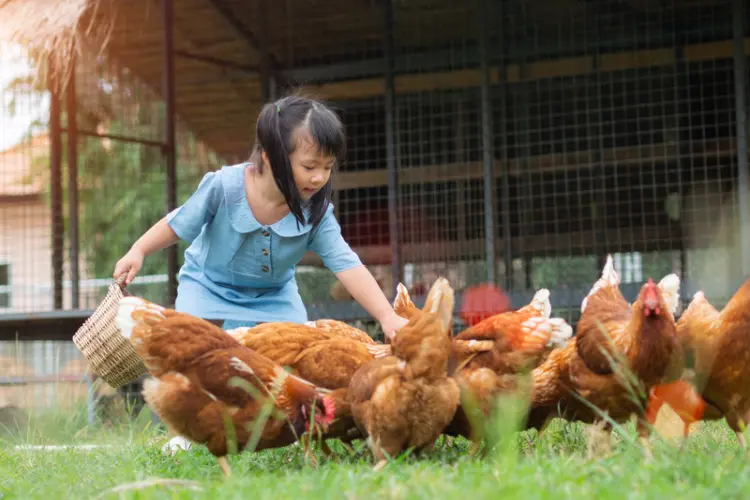
Vegetables
Chickens love vegetables! They’re a healthy treat and provide a lot of the nutrients chickens need. Cabbage, carrots, cucumbers, you name it, your feathered friends will probably gobble it up. They’re like the little feathered composters of your garden, aren’t they?
Which Vegetables they can eat?
- Carrots
- Cabbage
- Kale
- Spinach
- Swiss Chard
- Broccoli
- Cauliflower
- Brussel sprouts
- Beets
- Sweet potatoes
- Pumpkin
- Cucumber
- Zucchini
- Butternut squash
- Green beans
- Peas
- Bell peppers
- Turnip
- Corn
- Tomatoes
- Radish
- Lettuce
- Eggplant
- Celery
- Asparagus
- Collard Greens
- Bok Choy
- Parsnips
- Rhubarb leaves
- Beet Greens
- Okra
- Artichoke
- Arugula
- Leeks
- Fennel
- Watercress
- Endive
- Rutabaga
- Romaine Lettuce
- Squash blossoms
Fruits
Apples, peaches, berries – chickens appreciate a sweet treat just as much as we do! However, remember to remove any seeds or pits from the fruits as they can be harmful to your chickens. Who knew chickens could have a sweet beak?
Here is a list of fruits they can eat:
- Apples
- Bananas
- Pears
- Peaches
- Plums
- Berries (strawberries, blueberries, raspberries)
- Watermelon
- Cantaloupe
- Grapes
- Kiwi
- Cherries
- Pineapple
- Mango
- Oranges
- Apricots
- Nectarines
- Melons
- Papaya
- Pomegranate
- Guava
- Coconut
- Blackberries
- Grapefruit
- Lychee
- Passionfruit
- Star fruit
- Dragonfruit
- Fig
- Date
- Lemon (in small amounts)
- Persimmon
- Tangerine
- Lime (in small amounts)
- Avocado flesh (pit and skin are toxic)
- Prickly Pear
- Elderberries
- Mulberries
- Crabapples
- Boysenberries
- Quince
Grains
Grains like corn, wheat, barley, oats, and rice are excellent for chickens. They love scratching around for these treats and it keeps them occupied. Chickens getting a little cardio while they eat – not too shabby, right?
List of scratch grains you can feed them:
- Corn
- Wheat
- Barley
- Oats
- Rice
- Millet
- Quinoa
- Sorghum
- Rye
- Buckwheat
- Amaranth
- Triticale
- Teff
- Spelt
- Farro
- Wild Rice
- Brown Rice
- White Rice
- Black Rice
- Red Rice
- Bulgur
- Pearl Barley
- Rolled Oats
- Couscous
- Polenta
- Grits
- Hominy
- Cornmeal
- Popcorn
- Rice Bran
- Wheat Bran
- Kamut
- Emmer
- Einkorn
- Fonio
- Freekeh
- Job’s Tears
- Millet Bran
- Popcorn Kernels
- Rice Bran
Other Food Items as a treat periodically:
- Bread (in moderation)
- Pasta (cooked and plain)
- Nuts (not salted or flavored)
- Raisins
- Dried cranberries
- Dried figs
- Dried dates
- Dried apricots
- Dried plums
- Dried apples
- Dried banana chips
- Dried coconut
- Dried mango
- Oatmeal
- Cornbread
- Muffins (no sugar)
- Pancakes (no sugar or syrup)
- Waffles (no sugar or syrup)
- Rice cakes
- Crackers (no salt)
- Bagels (plain)
- Cereal (low sugar, no chocolate)
- Popcorn (no butter or salt)
- Pretzels (no salt)
- Rice Pudding
- Cooked Plain Rice
- Cooked Plain Couscous
- Biscuits (no sugar)
- Scones (no sugar)
- Dried Peas
- Dried Beans
- Dried Lentils
- Cooked Lentils
- Cooked Peas
- Cooked Beans
- Soaked Dog/Cat kibble
- Fish Pellets
- Dried Herbs
- Alfalfa
- Clover
- Dandelions
Foods You Should Avoid Giving to Chickens
Absolutely, there are several types of food that you should avoid giving to chickens for their safety and well-being. Here are some of them:
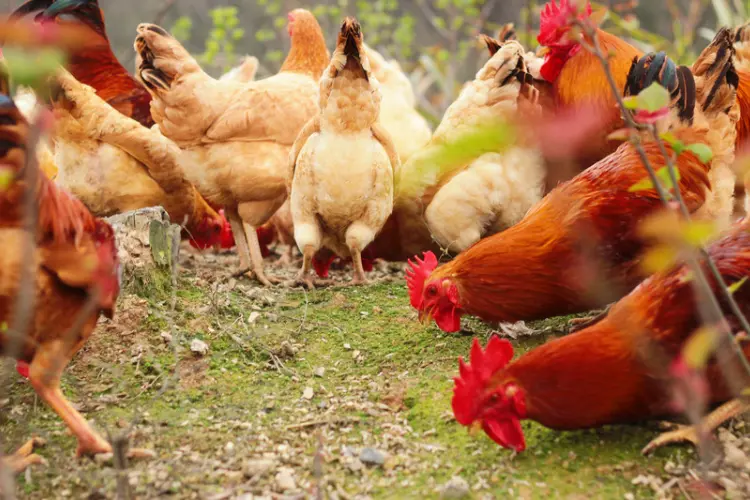
- Avocados: Both the fruit and the pit contain persin, a toxin that can cause heart damage and respiratory difficulty in chickens.
- Chocolate and Coffee: Both of these contain theobromine and caffeine which can be harmful to chickens.
- Onions: These can cause digestive issues in chickens, making them unwell.
- Raw Potatoes and Green Potatoes: Potatoes, especially the green parts, contain solanine, a chemical that is toxic to chickens.
- Processed Foods: High salt, sugar, or preservative content in processed foods can harm a chicken’s digestive system and overall health.
- Alcohol: It goes without saying that you should never give chickens alcohol, as it has the same negative effects on their liver and brain as it does in humans.
- Dry or Uncooked Beans: Raw, dry beans can be lethal to chickens as they contain a naturally occurring poison called phytohaemagglutinin.
- Citrus Fruits: Some studies suggest that citrus fruits can interfere with a chicken’s ability to absorb calcium, which can lead to weaker eggs.
- Raw Eggs: Feeding your chickens raw eggs might encourage egg-eating behavior, which is a bad habit you definitely want to avoid.
- Moldy or Rotten Food: Spoiled food can contain harmful bacteria and molds that can lead to illness or even death in chickens.
Don’t forget when you feed your chickens, they need a balanced diet. Food that you buy from the store is best because it has all the nutrients they need. Treats should only be a tiny part of what they eat.
Also, make sure your chickens always have lots of fresh, clean water to drink. This is important when it’s hot outside to keep them from getting too thirsty and staying healthy.
The Benefits of a Varied Diet
A varied diet helps chickens get a wide range of nutrients and allows them to engage in their natural foraging behaviors. Plus, it’s pretty entertaining watching them enjoy their healthy chicken treats, isn’t it?
How Much Should You Feed Your Chickens?
As a rule of thumb, an average laying hen requires about 1/4 to 1/3 pound of feed per day. Nonetheless, this can differ depending on aspects such as the age and size of the chicken, as well as its egg-laying status.
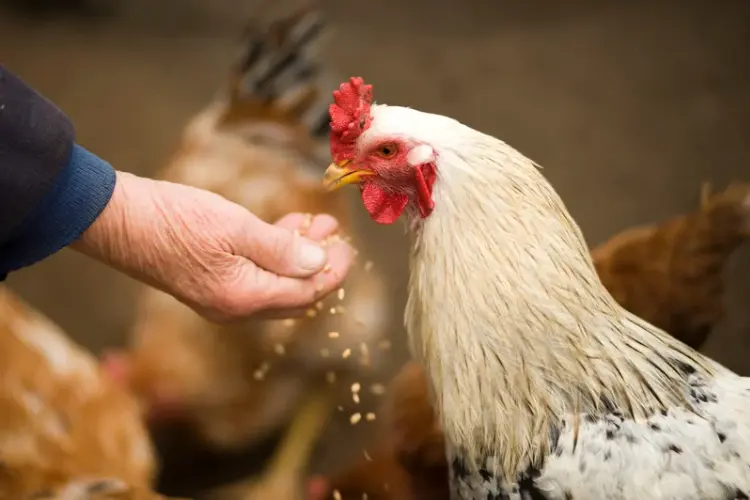
- Laying Hens: Laying hens eat about 1/4 to 1/3 pounds of feed daily. This diet can consist of layer pellets specifically designed to fulfill their nutritional requirements, incorporating an elevated calcium content to produce eggshells. A good diet is essential for hens to lay eggs.
- Chicks and Pullets: Baby chickens require a starter feed, which is high in protein to support their rapid growth. They will eat about 1-2 pounds of feed per month for the first few months. As they grow, the amount will increase. From 8 to 20 weeks, pullets require a grower feed, and they might consume up to 12-15 pounds during this period.
- Broiler Chickens: Chickens raised for meat, or broilers, will eat considerably more due to their faster growth. Meat birds can consume approximately 2 pounds of feed per week by the time they are around six weeks old. So these must be fed chicken feed that’s higher in protein.
- Non-Laying Hens and Roosters: Chickens that aren’t laying eggs require less feed, as they don’t have the added nutritional needs associated with egg production. An all-purpose feed or maintenance feed is suitable for these birds. The quantity will vary, but it can be slightly less than the amount needed by laying hens.
- Free-Range Chickens: Adult chickens that have access to pasture or free range will supplement their diet with bugs, grass, and other available food sources and therefore may require less purchased feed.
Keep in mind, these are just guesses and how much food your chickens eat can change based on their type, the weather, and how good their food is. Always watch your chickens to make sure they’re healthy. If they have a good weight, nice feathers, and are laying eggs regularly, their food is probably just right. And don’t forget, they always need fresh, clean water to drink.
Recognizing Nutritional Deficiencies in Chickens
It’s really important to make sure your chickens are healthy. If they’re not growing well, not laying many eggs, or their feathers don’t look good, they might not be getting the right food. If you see these signs, you may need to think about what they’re eating.
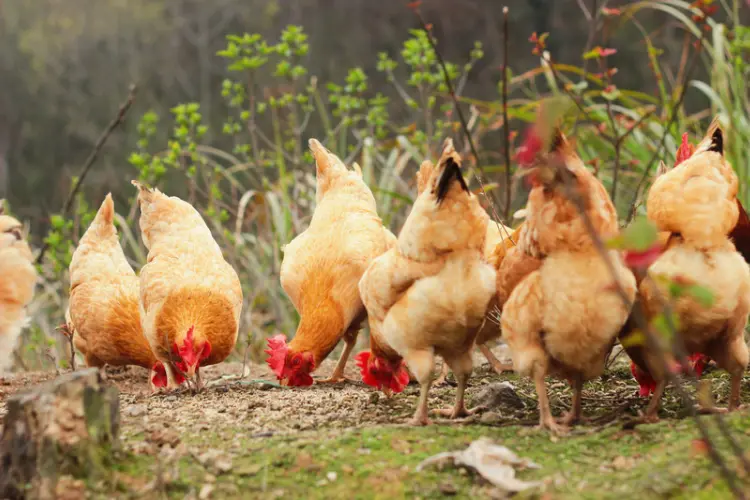
- Protein Deficiency: A protein-deficient chicken may have stunted growth, poor feather quality, and reduced egg production. Increase protein in their diet by adding high-protein foods such as mealworms, crickets, and peas.
- Calcium Deficiency: This may lead to soft or thin eggshells, and in severe cases, egg binding. Providing oyster shell grit as a supplement or feeding them back their own eggshells (cleaned and crushed) can help increase calcium intake.
- Vitamin A Deficiency: Signs may include weight loss, poor growth, decreased egg production, and respiratory infections. Adding green leafy vegetables and yellow or orange fruits and vegetables (like carrots or pumpkin) to their diet can help meet the need for Vitamin A.
- Vitamin D Deficiency: Chickens need Vitamin D for bone health and egg production. If your chickens are confined and do not have access to sunlight, they might develop a Vitamin D deficiency, resulting in rickets or soft-shelled eggs. Provide access to sunlight or use UVB lights.
- Vitamin E Deficiency: This may result in encephalomalacia or “crazy chick disease.” The main symptom is uncoordinated movement or falling over. Seeds, especially sunflower seeds, are high in Vitamin E, so you can include them in their diet.
- Vitamin B12 Deficiency: It can lead to poor growth, loss of appetite, and overall weakness. You can boost B12 in their diet by adding eggs and dairy products or using a B12 supplement.
- Iron Deficiency: Chickens with an iron deficiency may appear pale and show signs of anemia. Offering them greens, like spinach, and adding a vitamin-mineral supplement to their diet can help.
Conclusion
There you have it, a comprehensive guide on what can chickens eat list. Remember, a happy chicken is one with a varied, nutritious diet. Happy feeding chickens!
FAQ
Can chickens eat bread?
Yes, but in moderation. Bread doesn’t contain the necessary nutrients for a balanced diet but can be an occasional treat.
What kitchen scraps can I feed chickens?
Chickens can eat most vegetable and fruit scraps, along with grains like rice or pasta. Avoid anything salty, spicy, or processed.
Can chickens eat meat?
Yes, they can. Chickens are omnivores, and a bit of cooked meat can provide a protein boost. Avoid giving them raw meat to prevent diseases.
Can chickens eat eggshells?
Yes, eggshells can be a great source of calcium for chickens, essential for egg-laying hens. Ensure they are crushed well to avoid any association with their own eggs.
How often should I feed my chickens?
Chickens should have access to feed throughout the day. You can maintain a constant supply of feed in their chicken coop. Their natural instinct will prevent them from overeating.


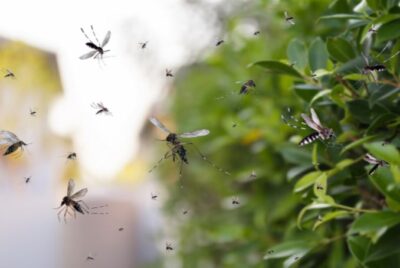
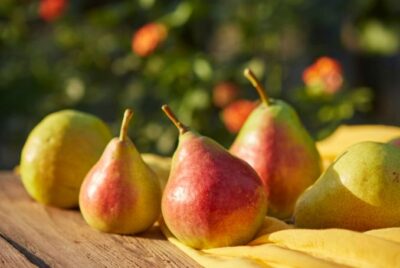
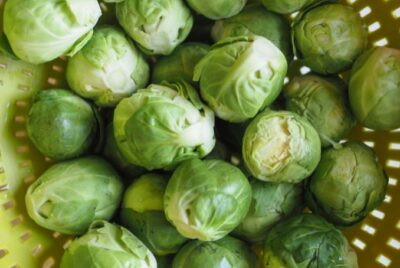
Comments are closed.